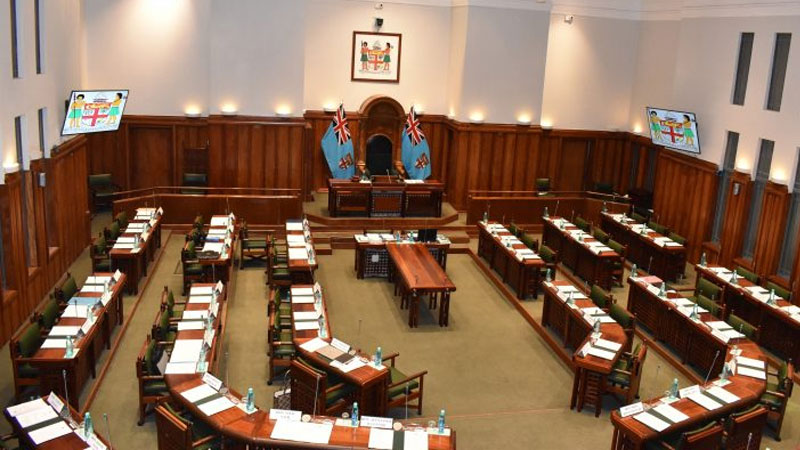
As the Minister for Economy, Aiyaz Sayed-Khaiyum gets ready to deliver the Revised National Budget tonight, people will be eagerly awaiting the government’s announcement on it’s plans to deal with rising prices due to freight and fuel costs, the decision on the National Minimum Wage and government services from now until the end of July.
Sayed-Khaiyum has confirmed that the Revised Budget is until July 31st and a full budget will be announced later for the new financial year starting on August 1st this year.
According to the Fiji Bureau of Statistics, the average annual rate of inflation for the twelve months to February 2022 stands at 0.6 percent while the month-on-month inflation rate [compared with February 2021] stands at 1.9 percent. Higher prices of upto 4.4 percent were recorded for bread & cereals, meat, oils and fats, fruit, vegetables, sugar and confectionery items, food products not classified elsewhere and non-alcoholic beverages such as coffee, cocoa and milo and mineral water and fruit juices.
Higher prices were recorded of upto 2.2 percent for pharmaceutical products, medical services and paramedical services.
Higher prices were recorded of upto 1.3 percent for hairdressing salons and personal grooming establishment and other appliances articles and products for personal care.
Price increase have also been recorded for furniture and furnishings, major household appliances, major tools and equipment.
Higher prices of upto 0.3 percent have also been recorded for spirits, wine, beer and tobacco.
Everyone has been affected by the rising prices, and Sayed-Khaiyum had earlier highlighted that people should expect higher prices of food and fuel resulting from the surge in global commodity prices and continued supply chain disruptions.
Sayed-Khaiyum had said according to the International Monetary Fund, crude oil prices are forecast to rise further by 11.9 percent this year however the sharp rise in oil prices should start to ease from later this year.
He adds they are working behind the scenes to see how they can mitigate inflated prices.
Sayed-Khaiyum says in December last year, inflation in the USA was 7 percent, the highest in almost 4 decades, 5.9 percent in New Zealand and 3.5 percent in Australia, the highest since 2014.
He says given these countries are our key trading partners, high inflation in these countries will be passed on to our domestic prices through the goods that we import from these countries.
The Reserve Bank of Fiji says the Food and Agriculture Organisation food price index rose by 1.1 percent, reaching the highest level since April 2011 driven by rising vegetable oil and dairy prices, a result of supply tightness in global markets.
The RBF has also confirmed that in January, Net VAT collections increased by 6.9 percent, underpinned by higher domestic VAT to $43.9 million, and customs import VAT was up by 24.8 percent to $37 million in collections and lower refunds.
Over the same period, commercial banks’ new lending for consumption purposes grew considerably by 163.9 percent (to $123.9 million, largely driven by increased lending to the wholesale, retail, hotels and restaurants sector as well as private individuals.
According to the RBF, the annual headline inflation in January stood at 2.7 percent mainly driven by high imported inflation due to rising commodity prices, persistent supply disruptions and the pick-up in foreign demand.
Given these developments and the recent floods, year-end inflation is expected to be around 4.5 percent in 2022.
For 2023 and 2024, year-end inflation is expected to moderate to 3 percent and 2.7 percent, respectively, as commodity prices and demand-supply mismatches are anticipated to stabilise.
Consultations were also held on the proposal to increase the National Minimum Wage Rate from $2.68 per hour to between $3.45 to $3.65 per hour.
We will have live coverage of the budget address by Sayed-Khaiyum at 7.30 tonight on our website and app, fijivillage.
Stay with us for updates on Legend FM and fijivillage on how the budget will affect you, what prices will go down or up, the minimum wage and plans for government services.
Stay tuned for the latest news on our radio stations

